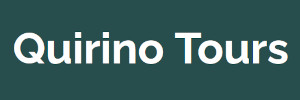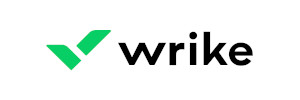The Power of Less - The Fine Art of Limiting Yourself to the Essential for business and life was written by Leo Babauta in 2009. Even though it's an 10 years old book since the every first publishing. This book remains top worth to read and spread book especially in the complicated world and time. The major concepts it introduces inside the book is quite an impact to our daily life. This article extractes the major concepts inside this book:
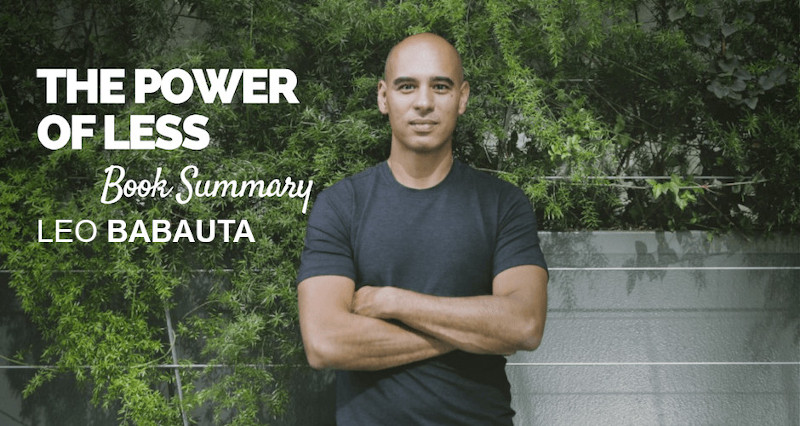
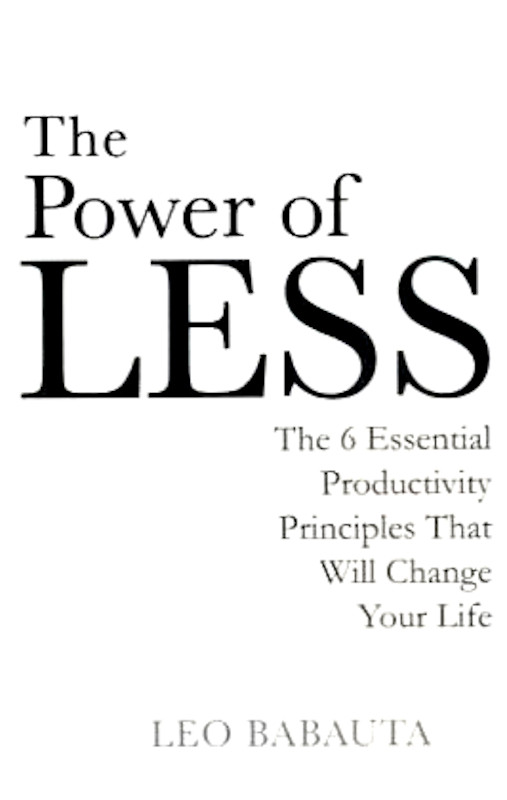
[SUMMARY Part#1]
Looking back into the history, we are in the era of human beings facing the most information and workload. Too much information makes people stressful every day. .
To modern people, work is a series of emails, news, and instructions, plus uninterrupted calls, instant messages, reports, notes, and files. The beginning of a day often starts with a fully loaded mailbox and end up with a full mailbox. Each letter represents a request to us to provide information, or to complete a task that we simply have no time to accomplish. We have to swallow all the information, and we have no idea how to control it.
This not only brings great pressure to us, but also a waste of time. If we can stop and think, we will find that this is totally not the life we want.
Calm down from those noise.
Do we have other options to avoid too much information and heavy workload ? Or do we have to follow Rousseau's footsteps to build a hut in the woods, and live alone in order to escape modern society and technology ?
I propose a compromise here: we can still enjoy boundless information, we can still communicate with people in real time when we want, and we can still use technology to improve work efficiency, but we have the freedom to choose the information we want to digest and what I want to do. It was a simpler life, but at the same time, we can still accomplish what we want to accomplish.
The trick is to limit the amount of information and work. Spend most of your time on the most important things, and don’t want to master everything. Imagine a simple life: workdays are easy, the stress index is low, and you can focus on the job on hand. Imagine that you only picked a few errands, but because of the selection, each item can fully achieve and maximize its effectiveness. By this way, you can achieve important goals without having to endure the pressure to do everything at the same time.
This may sound too ideal, but it is definitely practical. I did it, as long as I can operate a very easy system.
It’s all about choice.
SIMPLIFY
I sincerely believe in the power of simplification. When I simplify my life, I can get a better life because I reduce chores and concentrate on what I love. As long as people reduce chores, they can concentrate. For example, writing, as long as I can reduce redundant words and use the most concise text to convey the major idea, my creation can be more powerful.
Simplification has many different interpretations in different contexts. Sometimes, simplification represents going back to use unprocessed natural materials instead of industrial manufactured goods; everything is built and made from scratch rather than purchased directly. Although I also like this concept, the simplification that I am seeking is the simplicity of what I am doing: do less, not more, but achieve more.
Simplification is eventually only two steps:
1. Identify what's most important to you.
2. Eliminate everything else.
In this book, we will discuss how these two steps are practiced at all levels of work and life, but we will always return to these two concepts: focus on the main points and exclude the remaining minor things.
This can make you easier and happier, and perhaps unexpectedly make you more productive.
My own experience
Few years ago, I was a debt-laden person, full of work, and had very few time with my family, and my daily stress index was so high. I ate deep-fried and heavy-tasting food, and I didn't exercise, I also a heavy smoker. I am dissatisfied with the current status of my work. I feel that the pace is too fast and I don’t know what to do. My life was too complicated and I had no time to engage in activities that I love.
Therefore, I made a choice: I decided to simplify everything, and I want to actively change myself, starting from quitting smoking, concentrate only on it to quit smoking. I put all my energy on this goal, and as a result, a magical thing happened: concentration allowed me to overcome the obstacles in the early stages of quitting smoking. The obstacles that I couldn’t overcome over and over agin in the past.
Successfully quitting smoking encouraged me to continue to challenge new goals and habits. I used the same method: focus all my mind on a challenge, and the obstacles were naturally resolved. Concentrate on one goal at a time – I call it "One Goal" (One Goal) - instead of trying to complete multiple challenges at the same time.
Through this method, within the past few years, I have reached the following matters:
1. Enjoy jogging
2. Start a healthy diet
3. Be organized and productive
4. Trained to participate in the second marathon
5. Do two jobs and double your salary
6. Become an early bird (I usually get up at four in the morning)
7. Start being a vegetarian
8. Participate in the secondary triathlon
9. Successfully managed the blog "Zen Habits"
10. Successfully pay off debt
11. Saved the first emergency fund of my life
12. Simplify my life
13. Rectify unnecessary sundries at home
14. Lose nearly 20 kg of body weight
15. wrote two best-selling e-books
16. Complete the first draft of the first novel
17. Quit my job and start my own business at home
18. Successfully operated the second blog "Write To Done", with writers as the main audiences.
19. Publishing this book
At the same time, I still have time to be the father of six lovely children.
It sounds like a heavy load, but I step by step, one step at a time, I successfully overcame all the above difficulties. Once again, I still follow the "One Goal" principle, which is to commit to only one goal at a time, and to put all my mind and energy on it.
My blog "Zen Habits" records the process of achieving the above goals. Now, "Zen Habits" has become the world's top 50 blogs, with more than 60,000 subscribers and a monthly 2 million page views. Many readers ask, Why can I do so many things while I have just same 24 hours a day like people? My answer is: The key lies in knowing how to set limits, and how to remove them.
Six principles to easily increase productivity
The first part of this book lists the six guiding principles of "power of less" to help you maintain the highest level of productivity while maintaining a simple life.
The following rules of power of less will appear repeatedly in this book:
1. Set limits
2. Removal - Identify what's most important
3. Simplify complexity
4. Concentrate
5. Form a habit
6. Start from small
What this book can do for you?
It is :
1. to teach you the art of simplification.
2. to teach you to focus on important tasks.
3. to tell you how to do less, but can accomplish more.
4. to tell you how to focus, and use this to achieve any goal you want to accomplish.
This book is about quality, not quantity.
Each chapter in the book teaches you how to focus on a small number of things, and applies the powerful power generated by concentration to all aspects of life. After reading this book, you will learn the philosophy of simplification, how to reduce the amount of work, planning, intelligence and information on hand, and how to reduce the extraneous things in life, so as to reduce stress and increase productivity. You will find the power of simplification so powerful, and you will learn how to use it to accomplish one goal at a time.
No matter where you work, it will create a more calm and stable working atmosphere and environment.
This is a book about "less", about how much change "less" can bring to your life.
The content provides very practical advice and teaches you how to practice concepts in daily life.
[SUMMARY Part #2] Why is less power ?
We live in a world where it is generally believed that counting feces is beautiful. We want to make more money, buy bigger houses and cars, and have more clothes, furniture, and various items; we need a bigger shopping mall, not small shops in the past; our consumption has become higher, production has become larger, and there are more things to deal with than in the past.
However, there is always a limit to everything. We can only consume so much and only do so many things; Everybody has only 24 hours a day, once we reach the limit of production, we cannot handle more things. Many people see these limits as problems, while others see them as challenges: Can I still squeeze more time ? If I can use time more efficiently and learn to increase productivity, can I accomplish more in a limited time ?
The problem with constantly trying to increase the workload is that it does not necessarily bring the best results in the end, and accomplishing a lot of things does not mean that what you do makes sense. In fact, it's just like roulette: do so many things, there are always one or two times that will bring you good luck.
This should not be the case in life. Doing more means that you are very likely to do a lot of trivial things, but at the same time work too much and suffer from stress.
Imagine two reporters, one of whom decided to write a lot of reports every week, and the other decided to write only one. The first reporter wrote 30 reports every week, so he collected a lot of information frantically. Even though most of the information was only barely and interesting, he still tried to quickly write it into a short report with limited content, although none hit the topic of market. His boss was very satisfied with his workload and gave this reporter a verbal reward.
The second reporter thought that if he could only wrote one report this week, he would be better able to write the story vividly. So he spent half a day searching for information and thinking about ideas until he found a story that would definitely cause a sensation and win him awards. Then, he spent two days researching the background information of the story, and another few days writing articles, and carefully checked whether the content was correct.
Guess what? As a result, this story not only became the best report of the week, it was well received by readers, but also won awards, giving him the opportunity for promotion and the reputation. Using this report as a starting point, plus other equally high-quality stories, this reporter can build his career. The first reporter just wanted to rush high, and it would be good to see results immediately, while the second reporter concentrated on handling a small amount of work, but got more and longer-term returns.
This is power of less.
[SUMMARY Part #3] Simple Email Management
For many people, sending and receiving emails has become one of the standard working models. We are living in the inbox, whether it is to contact with family and friends, or completing a project, all of this is achieved through e-mail.
Unfortunately, the convenient email is out of control, preventing us from accomplishing important tasks and threatening to take away the sovereignty of life.
In addition to living in the inbox, we can have a better lifestyle. Minimize the time spent on e-mail, increase the efficiency of sending and receiving mail by setting limits, and then empty the inbox to become an e-mail master.
As long as you know how to set limits, develop simple rules and habits, and learn to deal with email more quickly, you can have the life described in the previous paragraph. You can get rid of the entanglement of email and focus on important things, such as your "One Goal", three important projects or your "most important task".
To get rid of the boundless suffering of email, you have to apply power of less, and make email a good helper by simplifying and setting limits.
* Limit the number of inboxes
How many sources of information do you have? Some people have up to six communication types, including text messages, voice messages, written documents, emails, blog messages, messages from different websites (such as MySpace, Facebook, AOL, etc.). The above are all different types of inboxes, each of which needs to be continuously organized. Although it is endless, it does not mean that it is exhausting and stressful.
To manage information easily so that their presence does not hinder productivity, you must start by reducing the number of inboxes. The following is the method of deletion:
1. List all types of receiving information
You may miss some at first, but as long as you remember the places that are not listed, add them to the list. The listed information receiving types should include all traditional and digital information, that is, written documents and computers.
2. Assess the value of each inbox
Sometimes we continue to use some inboxes, but actually they are already worthless to your life, and it is just another habit without thinking.
3. Merge or delete inbox
If something has lost its value, please consider removing it from your life. Try to see if you can go on without it for a week. After removing the uselesses, please try to merge the information from different channels into one inbox. In short, the fewer inboxes, the better. If possible, please delete most of inboxes and remain only four to seven inboxes. One to two will be better.
* Limit the time of sending and receiving Email
If Email occupies most of your time, or you keep checking your mailbox for new mail throughout the day, then you probably won’t be able to do too much your own business. Please make up your mind to send and receive letters at a fixed time. Never open the Email box for the rest of the time, so that you have time to deal with what is really important.
I suggest that you set the number and time of checking Email everyday. Here are some tips:
* Daily checking email times
The number a person checking email in a day is actually based on the nature of his/her work. The ideal situation is to only checking email once a day, so the interference of email is quite low, and processing email can be very efficient too.
* Best time to checking Email
I found that if you checking Email twice a day, on 10:00am and 4:00pm is a good choice, because you can checking Email in the middle of the morning, you will know if you have an urgent letter, and you can leave enough time for yourself to process letters before finish work in the afternoon.
* Not checking Email at the beginning of the day
A common trick of better productivity is not to checking Emails early in the morning. I think this is a fairly good suggestion. Receiving the letter early in the morning is to let the Email decide the next itinerary instead of deciding the most important thing to deal with that day. You put yourself in danger of being caught by Email and unable to escape.
* Turn off reminder
The reminder will only interfere your work in progress, disrupt your schedule, and mess up your own pace, and makes you follow the footsteps of the person who suddenly wrote to you.
* How to stick to it
You have to consider to form a good habit first as a priority for the first two weeks. Write down the rules and post them on the wall: "Only check Email at 10 am and 4 pm ! " (or any time you choose). Whenever the thought of checking Email comes up, stop the current action, take a deep breath, and then refocus on the work on hand. What is the return? You can accomplish more things.
* Reduce the amount of letters received
One of the important steps to manage an e-mail box is to avoid unnecessary mail entering the inbox.
The following are effective ways to reduce the volume of incoming mail:
1. Spam
I highly recommend Gmail because it has the most powerful spam filtering function.
2. System notification letter
I often receive notification letters automatically sent by various common systems, such as Amazon Bookstore, WordPress blog, PayPal gold flow service, etc. I set up the filtering function (that is,
"Rules" in mail software such as Mail.app or Outlook), the system will automatically put the mail into a specific data box and mark it as read according to the settings, or directly drop it into the trash can.
3. Batch work
After a day, I will always receive some emails that require follow-up actions, but they are only small actions, which only take about ten to fifteen seconds.
So I set up a filtering function, transfer them all to the "batch" folder, fixed processing once a day.
4. Forwarding letter
If you have friends and family who like to share letters to you, please write to tell them that you have received too many letters and are trying to reduce the number of incoming mail; tell them and thank them for their kind to share information but you don’t want to receive such messages again.
5. Announce to the world
One of the best strategies to reduce email is to prevent it in advance, let everyone know that you don’t want to receive a certain type of letter, and tell them where to get answers to common questions.
6. Unsubscribe newsletter
The less newsletter you subscribe, the less you will receive incoming mail.
* Empty inbox
After the above steps, only important letters will now go to the inbox, the question is how to empty it in the shortest time. As long as you use the following method, you should be able to empty the entire inbox in a very short time.
1. Temporary data box
If your mailbox is full, there are hundreds or even thousands of letters, please open a temporary data box named "to be archived", store all the letters in a temporary folder, and then find time to process. Arrange each processing time is about half an hour, filed one after another until all are emptied.
2. External work list
For most of the time, the reason why a letter stays in the inbox is that you must complete an action before you can process it. So don't put this kind of letter in your inbox, don't use it as a work list, you can record this kind of work instructions notified by letter on your real work list.
3. Quickly process
Processing email from top to bottom with one letter at a time. Open each email and dispose of it immediately. You can choose to delete, archive (to be read later), quickly reply (later archive or delete), record on the work list (later archive or delete), and execute the task immediately (if any all that is required is less than two minutes, file or delete immediately afterwards) or forward (file or delete later). Please note that no matter which option you choose, you can only archive or delete messages. Don’t let messages stay in your inbox.
4. Don't be afraid to press the delete key
We often feel that we have to reply to every letter, but not at all. Ask yourself, "If I delete this letter, what is the worst consequence ? " If the answer is not so bad, then just delete it, and then move forward. It is not possible to reply to each letter every time it is received, just select an important letter and reply.
5. Process all email until last empty
Once you open the inbox, you are determined to empty it. Don’t leave it in your inbox after reading it.
* Cherish words as gold
If you want to reduce the time spent on Email and maximize the effectiveness of each letter you send, the key is to write concise and powerful letters. I restrict myself to allow to write only five lines for each letter. (this is the upper limit, most of the time I use less than five lines). This limitation forced me to write letters in a simple and concise way, and only write what I really wanted to say, which also helped to greatly reduce the time to write letters.
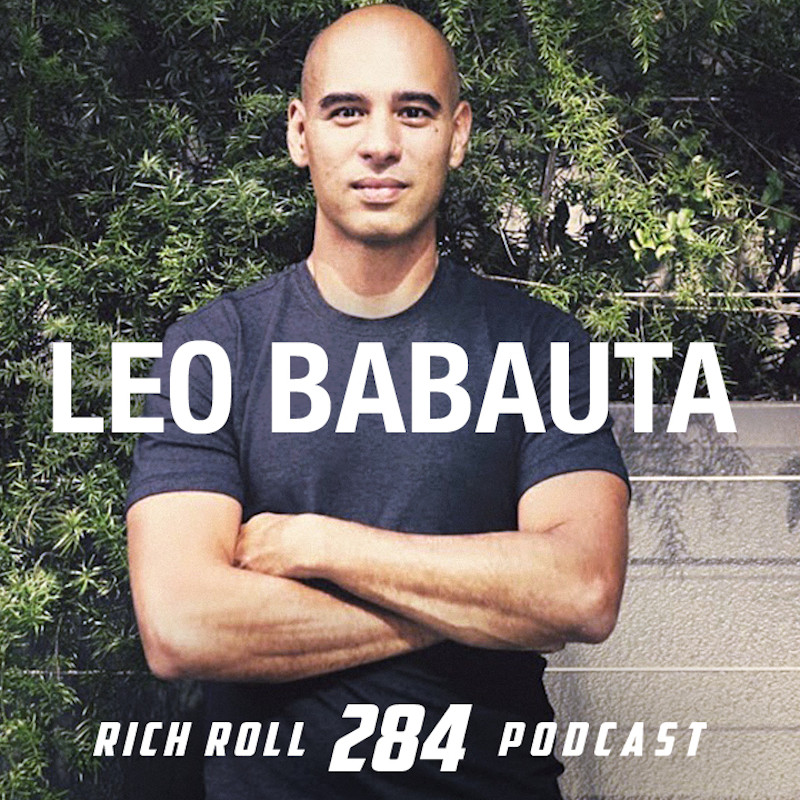
Leo Babauta's Zen Habits Blog and Facebook, Twitter, and Patreon page:
https://twitter.com/zen_habits
https://www.facebook.com/groups/OfficialZenHabits/
https://www.patreon.com/zenhabits
Optimal Living Daily Youtube video channel (joined by Leo Babauta) :
https://www.youtube.com/channel/UC4nH4OSgdL-8irdTC3dEx-w/featured

















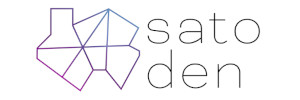
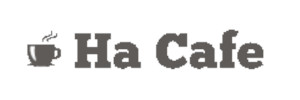





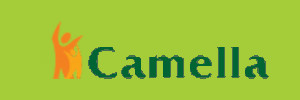

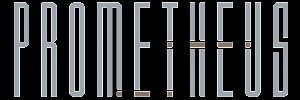
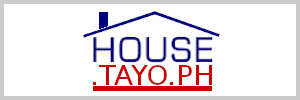



















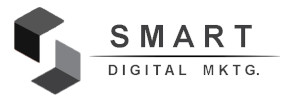


 Philippine Peso Exchange Rate
Philippine Peso Exchange Rate